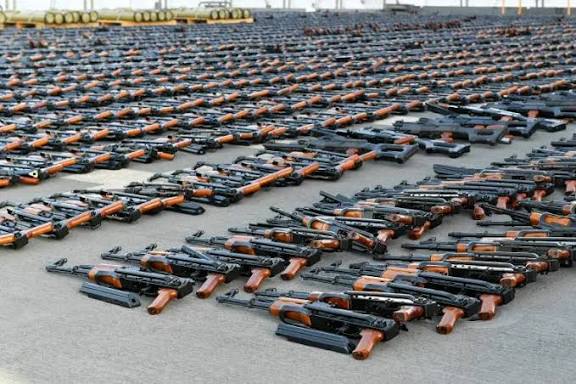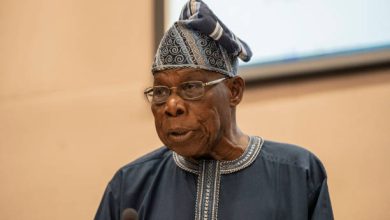1bn Illicit weapons fuelling conflicts in Africa, worldwide, UN warns

The UN has warned that the widespread proliferation of approximately one billion small arms and light weapons (SALW) in circulation globally, fuelling conflicts in Africa and around the world.
Adedeji Ebo, the Director and Deputy High Representative, UN Office for Disarmament Affairs, told the Security Council in New York that illicit weapons are sustaining conflict, terrorism and criminal networks across multiple regions.
Ebo said “more than one billion firearms are in circulation globally”.
“The illicit trade and misuse of small arms and light weapons fuels armed violence, terrorism and organised crime,” he said.
“Weapons diverted from national stockpiles, or at any point throughout the supply chain, could end up in the hands of non-State armed groups.”
The UN deputy disarmament chief highlighted that in spite of recent steps to strengthen arms control frameworks, illicit weapons still found their way to non-State armed groups.
Ebo warned that “the weapons produced and transferred today risk fuelling the instability of tomorrow.”
He urged the Security Council to integrate small arms controls into peace operations, peacebuilding strategies and sanctions monitoring.
“Our responsibility is clear,” he said.
“We must prevent the diversion and illicit manufacturing of small arms and light weapons or we will face the consequences of deepening insecurity.”
The UN official urged coordinated global action to stop the illicit flows that are driving conflict, organised crime and displacement in the Sahel and other places.
Ebo pointed to the growing spread of 3D-printed “ghost guns” without serial numbers, increasingly found in illicit markets in Western Europe and Latin America.
The human toll is stark, he said.
In 2024, the UN recorded at least 48,000 conflict-related civilian deaths, with small arms responsible for up to 30 per cent in some contexts.
“These abuses are preventable,” he stressed, calling for stronger stockpile controls, tracing systems and compliance with arms embargoes.
He said controlling small arms is “a prerequisite for sustainable peace” and highlighted AU-led efforts to harmonise stockpile management, support amnesty and disarmament initiatives.
Africa Amnesty Month and related programmes have led to the destruction of tens of thousands of weapons, he said, but the scale of the problem remains vast.
Mohamed Ibn Chambas, the African Union High Representative for Silencing the Guns, said small arms proliferation is “a cancer” driving instability across the continent, from the Sahel to the Great Lakes region.
“These weapons are being used to unleash horrific violence and suffering in the Darfur region of Sudan,” he said, referring to the ongoing atrocities reported in El Fasher.
Roraima Andriani, UN Special Representative to INTERPOL, the international police and crime fighting organisation, warned that illicit firearms trafficking is now deeply enmeshed with cross border organised crime.
Andriani said networks use weapons to control territory, protect illicit economies and expand influence.
“This is a transnational chain of violence, that can only be addressed through transnational cooperation,” she said.
INTERPOL’s global iARMS database contains more than two million records of lost, stolen and trafficked weapons, she noted.
The INTERPOL’s data support multinational operations that have seized thousands of firearms and dismantled networks tied to terrorism, trafficking and illegal mining.
“No measure taken in isolation can prevent the flow of such weapons across the globe,” she said, urging the Security Council to explicitly incorporate INTERPOL’s role into sanctions and arms embargo mandates.
NAN



